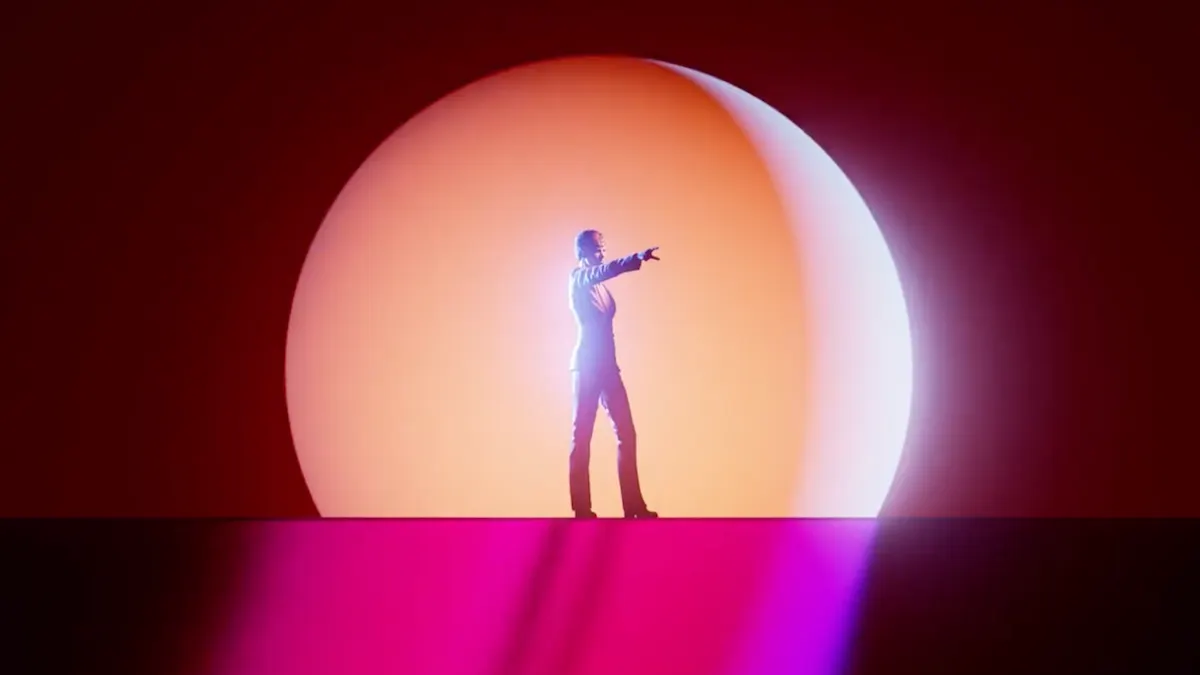In his lifetime, David Bowie—widely considered one of the most influential musicians of the 20th century—produced a prodigious catalog of 27 studio albums, 11 live albums, 4 soundtracks, and 128 singles. But it appears that the singer-songwriter, who passed away in 2016, still has one song left to sing.
On Thursday, Gala Music, an offshoot of Web3 startup Gala Games, announced a partnership with music producer Larry Dvoskin and publisher Warner-Chappell Music to release a never-before-heard version of Bowie’s hit 1983 song “Let’s Dance” via a limited series of NFTs.
On April 14th, 40 years to the day after “Let’s Dance” originally debuted, Gala Music will release 3,003 NFTs, each featuring a piece of Bowie-inspired artwork, that will unlock the holder access to the unheard version of “Let’s Dance” that Dvoskin produced with Bowie in 2002.
Put on your red shoes and dance the blues!
To celebrate the 40th anniversary of 'Let's Dance' we're releasing a never before heard version of #DavidBowie's iconic track with proceeds donated to @MusiCares.
Let's Dance! https://t.co/bzbfHiHBZV#BowieForever #ABetterWayToPlay pic.twitter.com/rTLPEHr6v8
— Gala Music (@GoGalaMusic) April 6, 2023
The NFTs will be sold on a pay-what-you-wish model; all initial proceeds from the sale will benefit MusiCares, a charity that provides health and human services to the music community.
Dvoskin described the track in a statement as a “more dreamy, electronic” version of the smash song, which remains one of Bowie’s most popular tracks ever released. The music producer and songwriter has long wished for the song’s revamp to see the light of day.
With the 40th anniversary of the release of “Let’s Dance” approaching, Dvoskin turned to Bowie’s estate to attempt to convince it to release the song via NFTs.
“When I first talked with the executor of the Bowie Estate, he told me he initially planned to listen to my pitch about releasing this as an NFT and then politely pass,” Dvoskin said in a statement. “But when he pulled up the original 2002 email in which Bowie expressed his enthusiasm for doing the recording, that changed his mind. This was a creative endeavor David never got to see released during his lifetime. We are honoring his wish by releasing it now.”
Next week’s release will not, however, mark the Bowie Estate’s first foray onto the blockchain.
In September, Bowie's estate launched a series of NFTs in partnership with marketplace OpenSea titled “Bowie on the Blockchain.” That collection, which was also sold to raise money for charity, received substantial backlash from Bowie fans who derided the blockchain experiment as inconsistent with the late artist’s ethos and values.
Bowie’s entire music catalog is currently owned by Warner Chappell Music, a subsidiary of Warner Music Group, which purchased the collection early last year for upwards of $250 million. In November 2022, the music label announced a deal with Web3 entertainment incubator Defient to “unlock the power of Web3 for songwriters.”
Dvoskin's deal with the label is described as Warner Chappell Music's "first completely native NFT agreement" for a song that had never been released through physical or digital formats.
Last week, in the midst of a large-scale layoff, Warner Music Group said that it planned to spare employees involved in its burgeoning slate of Web3 and AI initiatives, citing “new tech initiatives as central to the company’s future."
Gala Games is best known for its titular Web3 gaming efforts, but has also made inroads into music and film as it explores other entertainment use cases for NFTs and tokens.
The startup faced some scrutiny earlier this year when it tweeted about upcoming film projects with actors Dwayne “The Rock” Johnson and Mark Wahlberg—an announcement that appears to have boosted its native token GALA some 115%—only to later delete the tweet and call it a “bit overzealous." Gala clarified that both actors' respective production companies are co-producing documentary film projects unrelated to their own lives or careers.





